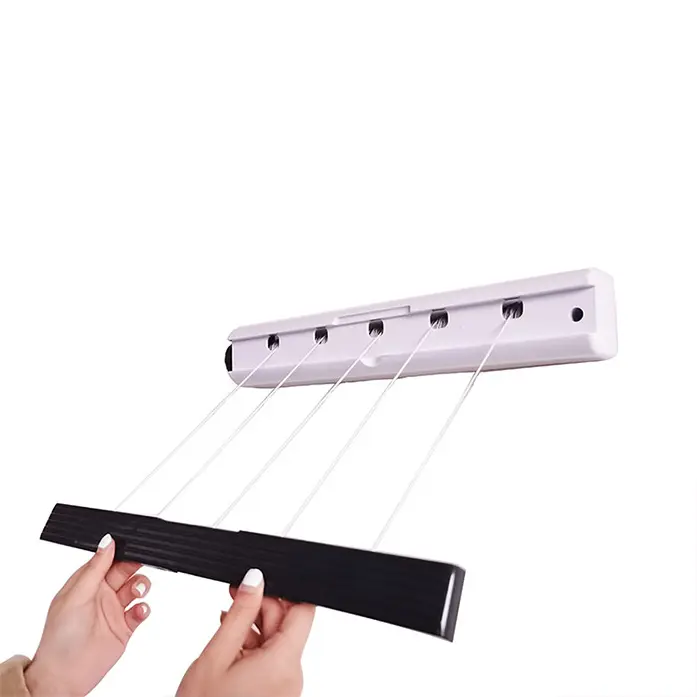Use a clothesline instead of a dryer to dry your clothes in warm, dry weather. You save money, energy, and the clothes smell great after drying in the fresh air! One reader says, “You get a little exercise, too!” Here are tips on how to choose an outdoor clothesline:
The average load of wash uses about 35 feet of line; your clothesline should accommodate at least that. Unless the height of a pulley-style line is significant, the clothesline shouldn’t be a lot longer than that, as the sag factor increases with length.
A load of wet wash weighs about 15 to 18 pounds (assuming it is spin-dried). It will shed about a third of that weight as it dries. This may not seem like much weight, but it won’t take long for your new clothesline to get stretched out a bit. By leaving a little “tail” when you tie your knot for either style of clothesline, you’ll be able to undo it, pull the line tight, and retie it as often as you need to.
Three Common Clothesline Types
Basic plastic clothesline has the advantage of being waterproof and cleanable (you can wipe off the inevitable mildew). With wire and fiber reinforcement, it is stretch-resistant—and it’s cheap. You can find a 100-foot roll for less than $4. However, it is thin, which means that it will be harder for you to grip, and the clothespin is not going to hold as tightly as on a thicker line.
Multifilament polypropylene (nylon) is tempting because it is lightweight, water- and mildew-resistant, and strong (our sample was 640-pound test). However, its slippery texture deters a firm clothespin grip, and it doesn’t tie well.
Our top choice is basic cotton clothesline. It’s about the same price as nylon, which is about $7 to $8 per 100 feet. In theory, it is weaker (only 280-pound test in our sample), but unless you’re hanging out pots and pans to dry, it should hold up fine.
Post time: Sep-05-2022


